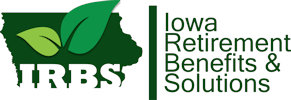Navigating a Tax-Efficient
Retirement
Navigating a Tax-Efficient Retirement
Posted by Morgan Fisher
Serving Cedar Rapids, Iowa, and Surrounding Areas.
 Navigating a Tax-Efficient Retirement
Navigating a Tax-Efficient Retirement
Saving diligently for retirement is a commendable financial goal, but the choice between pre-tax and post-tax contributions can significantly impact the ultimate value of your nest egg. While a $1 million balance in your 401k may sound like you’re a millionaire, the tax implications can make a substantial difference.
It is important for everyone to understand the basics of pre-tax (traditional) and post-tax (Roth) retirement accounts. Traditional accounts allow you to save without immediate taxation, and earnings grow tax-free, but taxes are due upon withdrawal. On the other hand, Roth accounts involve contributing already-taxed money, offering tax-free growth and withdrawals in retirement.
For some, the key considerations may revolve around your current or anticipated future tax brackets. For others, they may simply choose traditional accounts because that is what is offered through their work. However, when making decisions about pre-tax and post-tax contributions for your retirement, it’s crucial to be aware of certain rules that may impact your choices.
One key factor is income maximums. For a Roth IRA, the ability to contribute starts to phase out if you earn more than $138,000 as a single filer and $218,000 for married couples filing jointly. However, there are no income restrictions on contributions to a Roth 401k through your employer.
Another critical consideration is Required Minimum Distributions (RMDs). The IRS mandates RMDs from various retirement savings vehicles, including 401k plans and traditional IRAs once you reach age 73. However, Roth IRAs are exempt from RMDs, providing more flexibility in managing your retirement income. For more information Required Minimum Distributions, click here.
Oftentimes, a flexible approach by contributing to both types of accounts allows you to adapt to changing financial circumstances. This flexibility is particularly useful for individuals with fluctuating incomes due to bonuses, commissions, or business ownership.
Predicting future tax brackets with certainty is challenging, making a diversified approach a wise strategy. Just as you diversify your investment portfolio for different market environments, diversifying your retirement income streams through both types of accounts helps control various known and unknown risks. Consulting with both a financial and tax professional can provide valuable insights and help you navigate the complexities of pre-tax and post-tax contributions for a tax-efficient retirement. 
If, upon reading this, you realize that you or your loved one only has pre-tax retirement accounts, there’s no need for alarm. Check out our blog post “Unveiling the Benefits of Roth Conversions” to explore the advantages of Roth conversions. Our in-house advisor, Ethan Ball, specializes in helping you understand the value and benefits of a Roth conversion.
Key Takeaways- While the choice between traditional and Roth retirement accounts may seem like an either/or decision, the reality is quite the opposite. In many cases, a balanced approach—contributing to both types of accounts throughout one’s career—offers the most benefits. This balanced approach allows you to maximize tax benefits, adapt to changing financial circumstances, and hedge against uncertainties in future tax brackets.
If you find yourself uncertain about the best approach for your unique situation, consulting with your financial professional at Iowa Retirement Benefits & Solutions can provide valuable insights. They can assist you in weighing your options, building a financial plan that considers tax efficiency both before and during retirement, and ensuring that your retirement strategy aligns with your long-term goals.
Investment advisory services are offered through Fusion Capital Management, an SEC registered investment advisor. The firm only transacts business in states where it is properly registered or is excluded or exempted from registration requirements. SEC registration is not an endorsement of the firm by the commission and does not mean that the advisor has attained a specific level of skill or ability. All investment strategies have the potential for profit or loss.




